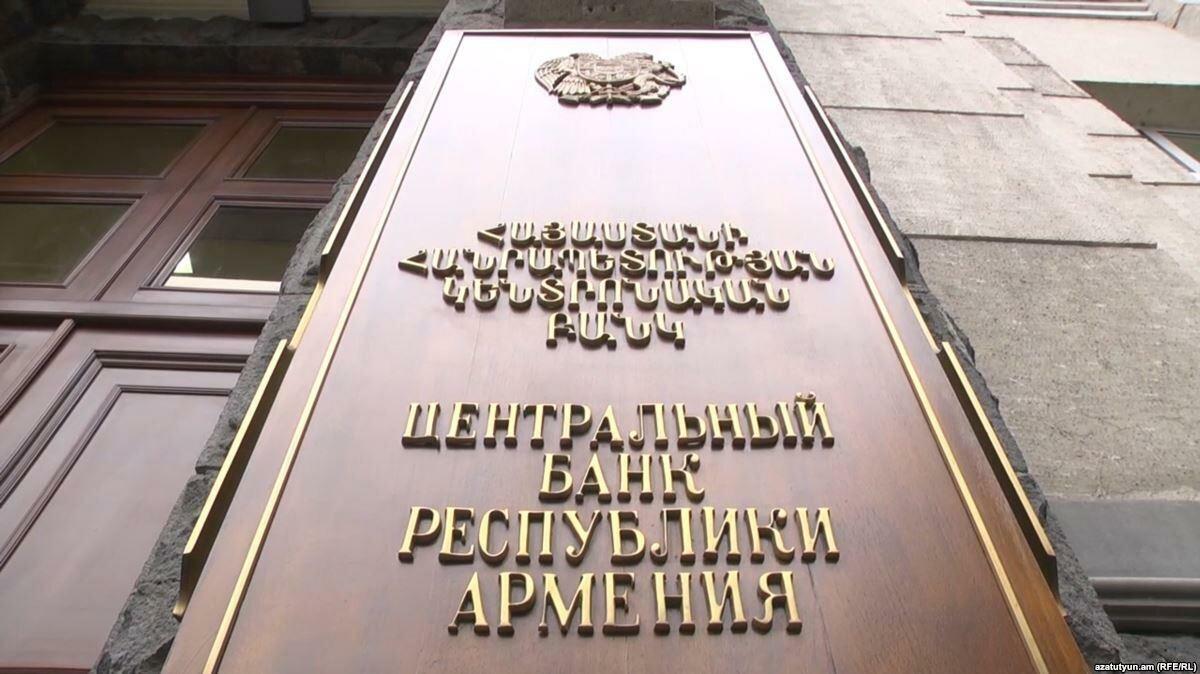Armenia's foreign trade collapse Review by Caliber.Az
The ongoing conflict in Ukraine and Russia's rapidly weakening economy due to Western sanctions has led to a drop in trade between the countries of the Eurasian Economic Union, reducing the volume of transfers from migrant workers from the organization's member states. Armenia is experiencing the most acute problems in this regard: according to a report by the Central Bank of the republic, the volume of Armenian-Russian trade has sharply declined this year and remittances from Armenian seasonal workers in Russia have also decreased by 20%. Moreover, the final annual forecasts promise even greater losses than in the first third of the year.
"Amid military conflict in Ukraine, Armenia's trade with Ukrainian and Russian partners has sharply decreased. There was also a noticeable decrease in remittances from Armenian seasonal workers working in Russia," Deputy Chairman of Armenia's Central Bank Hovhannes Khachatryan said the other day at a meeting of the parliamentary standing committee on financial, credit and budgetary issues.
Back in March, Armenia's Central Bank warned of serious risks to the macroeconomic security of the republic, which stemmed from anti-Russian sanctions, blockade of transport communications across the Black Sea and disruption of global supply chains. The first and most tangible blow was the deficit of imported goods and the growth of food prices in the Armenian market. The supply of raw materials for the Armenian industry also increased in price. In the case of Armenia, the weakening of ties with the Russian economy can turn into a catastrophic loss, taking into account the fact that about 83% of the total trade of this republic with the post-Soviet countries falls on the share of the Russian Federation. Considering the situation in development, the experts of Armenia's Central Bank come to the conclusion that by the results of the current year the Armenian economy expects a reduction in industrial growth and export, a slowdown in construction and services, as well as more severe influence of the factor of import inflation. In particular, according to the Fitch's forecast, the growth in consumer prices will amount to 8.5% on average in 2022 which is higher than the upper limit of the acceptable range of Armenia's Central Bank. Notably, according to the Statistics Agency, food prices in Armenia grew by 14.5% year-on-year in April 2022.
According to Deputy Chairman of the Central Bank H. Khachatryan, the annual Russian-Armenian trade turnover was projected at about $2.5 billion, of which about $800 million falls on export, and $1.7 billion - on imports. However, these figures most likely will not be achieved, and the turnover has already reduced by 20%. At the same time, high inflation in Russia (about 18%) and risks of rouble devaluation also negatively affect the prospects of the Armenian export. "The Armenian-Ukrainian trade turnover, estimated at $160 million, three-quarters of which accounts for imports to Armenia, is at zero," Khachatryan said.

It should be noted that according to Armenian Minister of Economy Vahan Kerobyan, back in March the volume of Armenian exports to Russia dropped by 30%, and due to the high volatility of the currency market the process of renegotiation of contracts at already new prices has begun, which promises even greater losses for exporters. Armenia, which has been in a transport deadlock for three decades, has been facing difficulties with its import-export operations, and today, due to anti-Russian sanctions, many international shipping and forwarding companies have refused to cooperate with Russia in transport and logistics, essentially depriving Armenian suppliers of their main export market. And this is not the limit; some Armenian experts believe that by the end of 2022, the volume of exports to Russia could decrease by as much as 40%.
The collapse of trade relations with Russia has been exacerbated by the recently intensified revanchist sentiments of the "Karabakh clan": the opposition's tough confrontation with the current government in Yerevan over the normalization of political and economic relations with Turkey and Azerbaijan leaves no chance for Armenia to quickly open the transport corridors that its economy needs, and to resume mutually beneficial trade.
The expected failures in foreign trade will inevitably affect all sectors of the already damaged Armenian economy. Thus, according to short-term forecasts of the Central Bank, the country's sovereign risk indicators and inflation expectations will increase, and the projected economic growth in Armenia in 2022 will be significantly reduced. And in the medium term, the slowdown in economic growth will be associated with the expected deterioration of the investment climate, which, in turn, will lead to a slower recovery in productivity. However, the trade crisis in the EAEU region has already damaged the Armenian budget in other directions: only in March-April 2022, Armenia received about 10 billion drams ($22 million) less from the EAEU, the funds formed at the expense of import customs duties, which are supposed to be transferred to the national budget. According to Rustam Badasyan, head of the State Revenue Committee, due to the general economic situation, revenues to the common Eurasian "treasury" decreased, while the war in Ukraine and anti-Russian sanctions caused difficulties with the mechanisms of distribution of funds from the common EAEU budget. We can only guess how these problems will be resolved and what the losses from the reduction in trade of the Union's countries will be.
All the above-mentioned negative processes in the EAEU countries and their impact on the Armenian economy are systematically monitored by leading international financial and rating organizations. In this regard, the International Monetary Fund recently cut its forecasts for the growth of the Armenian economy in 2022 from 5.5% to 1.5%, i.e., almost fourfold. The estimations of the experts of the Fitch rating agency are also critical: the annual indicators of the Armenian GDP are lowered from 5,3% to 1,3%, the similar indices are voiced by the specialists of the European Bank for Reconstruction and Development, who expect the collapse of the Armenian GDP from 5,3% to 1,5%.

Moreover, Fitch Ratings pointed to another negative factor causing serious damage to the economy and social stability in Armenia: the sanctions are tightening the Russian labour market and, as a result, remittances from Armenian migrant workers are decreasing. "Remittances of Armenian seasonal workers from Russia have decreased, and by the end of 2022, such transfers are expected to decrease by about 20%," Khachatryan said the other day. The forecasts voiced recently promise a decline in Russian GDP from 6 to 10 per cent or more, and in the case of a worst-case scenario, some experts do not exclude that the reduction in the volume of remittances from Armenian labour migrants may reach 40% by the end of the year.
In order to assess the scale of losses under such a negative scenario, it should be recalled that last year Armenia received $2.109 billion in transfers from labour and other migrants from abroad (about 43% from Russia), while the volume of remittances increased by 14.6% compared to the previous year. In fact, today almost every third Armenian family forms a considerable part of its family budget at the expense of remittances from labour migrants. The reduction of such remittances from Russia, as well as Ukraine, will inevitably affect the consumption level of Armenian households, and the negative multiplier effect of this will reduce turnovers in trade and services, and naturally reduce tax collection.
It would seem that the above information gives no reason to be optimistic, but the Armenian government probably feels differently. The Armenian media is happy to report on the negative migration balance in Armenia in the first quarter of the year, for the first time since gaining independence. More than 185.7 thousand Armenian citizens returned home from Russian earnings. However, this "joy" is of questionable order, given the lack of jobs and other prospects in the homeland. Commenting on what is happening, in an interview with CivilNet, Minister of Economy Vahan Kerobyan spoke in the spirit of ancient Armenian patriotism: "Foreign transfers spoil the people who receive them, prevent people from working, and working at home is much more profitable than going abroad to work." That's it, no more and no less. "These people (migrant workers) don't want to work. We can discuss for a long time that there is a problem with jobs, but we all know that there are vacancies in all companies," the minister added.
However, the head of the economic department refused to answer clarifying questions about the difference in wages at home and abroad, he did not name the industries and spheres of the Armenian economy where mythical vacancies allegedly exist.








